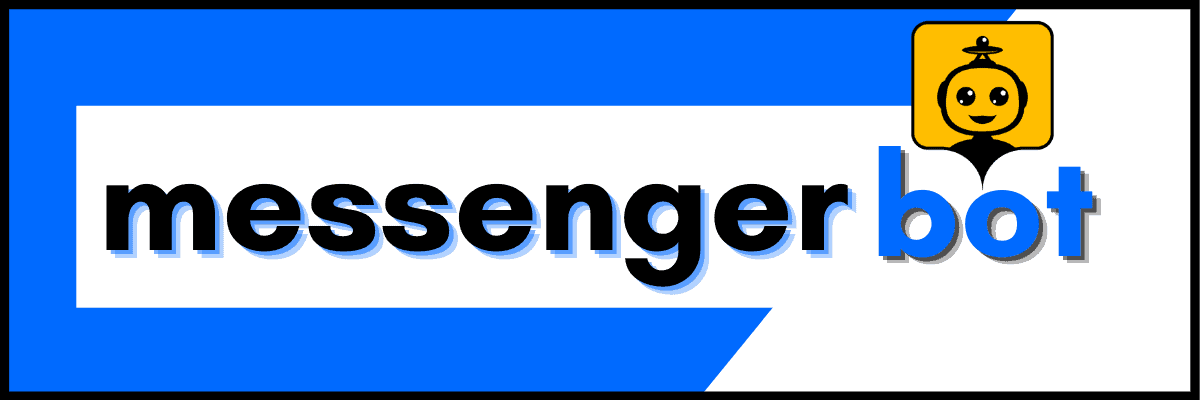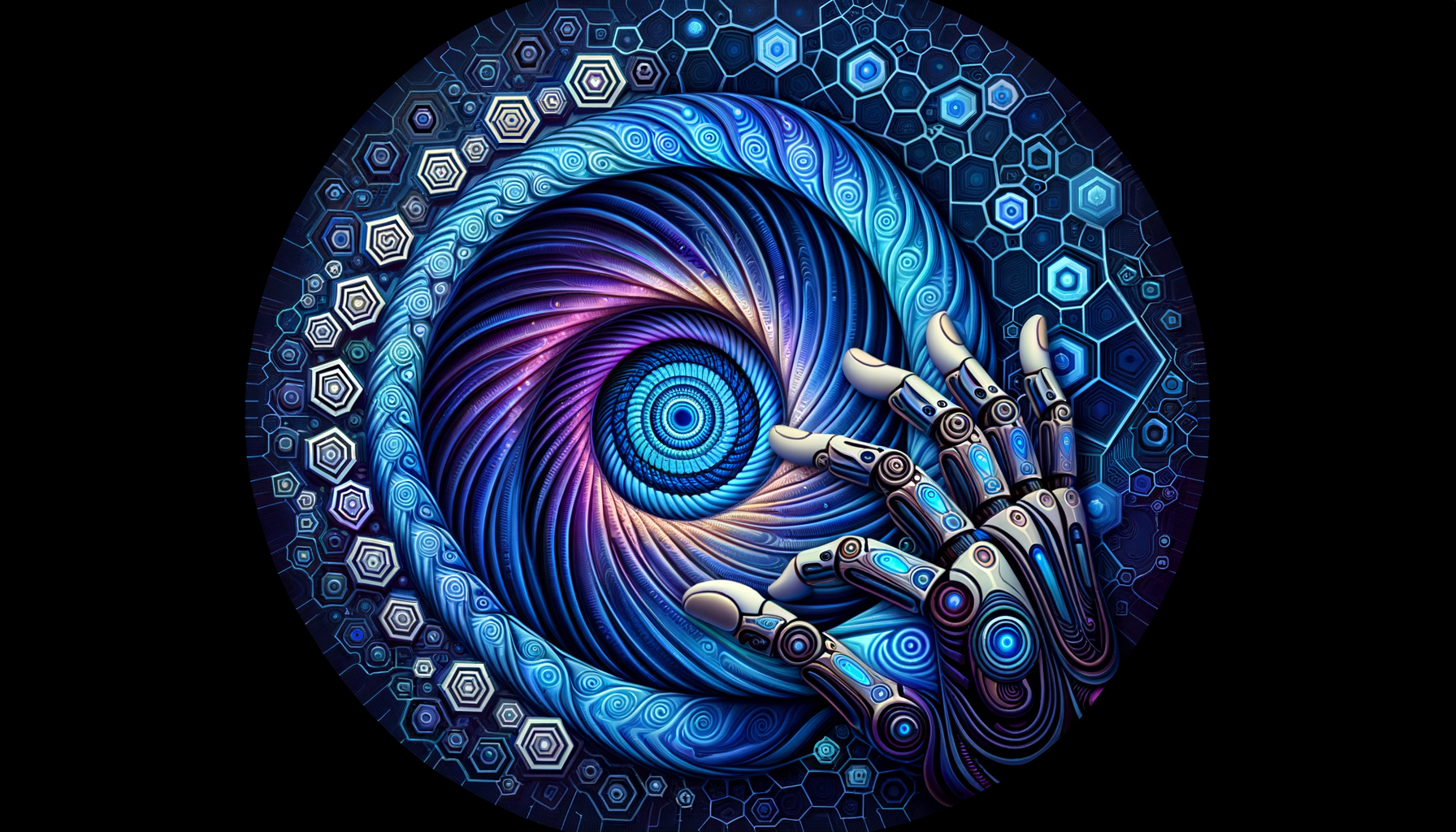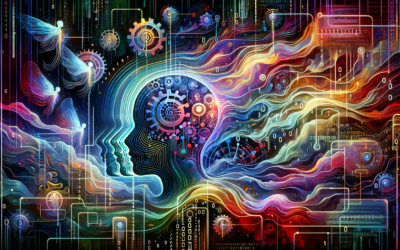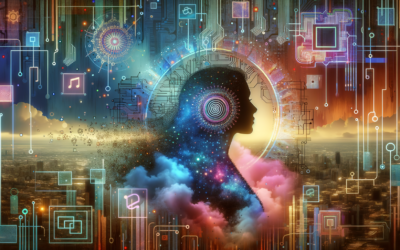As businesses strive to deliver exceptional customer experiences, the integration of artificial intelligence (AI) into customer service operations has emerged as a game-changing solution. AI-powered customer service bots, or chatbots, are revolutionizing the way brands interact with their customers, offering round-the-clock support, instant response times, and personalized assistance. With the ability to handle a wide range of inquiries and tasks, these intelligent virtual assistants are elevating the customer support experience, ensuring that every interaction is efficient, informative, and tailored to individual needs. In this article, we’ll explore the world of AI-powered customer service bots, uncovering their benefits, the best platforms and solutions, cost considerations, and real-world examples of successful implementations. Whether you’re seeking to streamline your support operations, reduce response times, or simply provide a more engaging customer experience, this comprehensive guide will equip you with the knowledge and insights to harness the power of AI in customer service.
1.1 The Rise of AI in Customer Service
In the rapidly evolving landscape of customer service, the integration of Artificial Intelligence (AI) has emerged as a game-changer. As businesses strive to deliver exceptional experiences and meet the ever-increasing demands of modern consumers, AI technology has proven to be a powerful ally. The rise of AI in customer service is fueled by its ability to streamline processes, enhance efficiency, and provide personalized support at an unprecedented scale.
According to a recent study by Salesforce, 77% of service organizations currently use or are planning to implement AI-powered chatbot technology. This remarkable statistic underscores the widespread recognition of AI’s transformative potential in the customer service realm. By leveraging AI-driven solutions, companies can automate routine tasks, accelerate response times, and unlock new levels of customer understanding and engagement.
Benefits of AI-Powered Customer Support
The rise of AI in customer service is driven by the multitude of benefits it offers, including:
- 24/7 Availability: AI-powered chatbots and virtual assistants can provide round-the-clock support, ensuring customers receive instant assistance regardless of the time or day.
- Increased Efficiency: AI customer service bots can handle high volumes of inquiries simultaneously, reducing wait times and improving operational efficiency.
- Personalized Experiences: By leveraging customer data and machine learning algorithms, AI systems can deliver tailored recommendations and personalized experiences, enhancing customer satisfaction.
- Multilingual Support: AI-driven customer service solutions can communicate in multiple languages, enabling businesses to cater to a global customer base effectively.
- Continuous Improvement: AI systems have the ability to learn and improve over time, ensuring that customer service processes are constantly optimized for better performance.
As AI technology continues to advance, its applications in customer service are poised to become even more widespread and sophisticated. Companies that embrace AI early on will gain a competitive edge, fostering stronger customer relationships, reducing operational costs, and staying ahead of the curve in an increasingly customer-centric business landscape.
Here is the 2nd section and 2 subsections of the article tailored to Messenger Bot:
What is AI chatbot customer service?
In today’s fast-paced digital world, businesses are constantly seeking innovative ways to enhance their customer service experience. One solution that has gained significant traction is the integration of AI-powered chatbots into customer support operations. These AI conversational agents leverage natural language processing (NLP) and machine learning algorithms to understand and respond to customer inquiries, streamlining interactions and providing instant assistance around the clock.
2.1 Understanding AI Chatbots
An AI chatbot for customer service is a software application that utilizes natural language processing (NLP), machine learning, and artificial intelligence to simulate human-like conversations. It aims to automate and streamline customer interactions by providing instant responses to common inquiries, troubleshooting issues, and guiding users through various processes.
An effective AI customer service chatbot should possess the following key characteristics:
- Natural Language Understanding (NLU): Ability to comprehend and interpret human language, including slang, misspellings, and context, to provide accurate and relevant responses.
- Contextual Awareness: Capability to maintain context throughout the conversation, remembering previous interactions, and adjusting responses accordingly.
- Personalization: Tailoring the tone, language, and responses to individual users based on their preferences, past interactions, and available data.
- Integration: Seamless integration with existing customer service platforms, knowledge bases, and backend systems to access relevant information and perform requested actions.
- Self-Learning: Continuously improving through machine learning algorithms, analyzing past conversations, and adapting to new scenarios and user behaviors.
- Multilingual Support: Ability to communicate in multiple languages to cater to a global customer base.
- Sentiment Analysis: Detecting and responding appropriately to the emotional state of the user, such as frustration or satisfaction.
- Handoff to Human Agents: Recognizing when an issue is too complex or sensitive and escalating the conversation to a human customer service representative.
By incorporating these features, AI chatbots can provide efficient, consistent, and personalized customer service, reducing wait times, increasing customer satisfaction, and enabling businesses to handle higher volumes of inquiries cost-effectively. At Messenger Bot, we empower companies to leverage the power of AI-driven chatbots, revolutionizing the way they engage with customers and deliver exceptional support experiences.
2.2 Zendesk AI: A Leading Chatbot Solution
One of the pioneering platforms in the AI chatbot space for customer service is Zendesk AI. As a part of the comprehensive Zendesk Suite, this solution provides businesses with advanced conversational AI capabilities to automate customer interactions across various channels, including web, mobile, and social media.
Zendesk AI’s chatbot leverages natural language understanding (NLU) and machine learning to interpret customer inquiries and provide relevant solutions from the company’s knowledge base. It continually learns from past interactions, adapting its responses to better understand the context and nuances of customer conversations.
One of the key strengths of Zendesk AI is its seamless integration with the Zendesk platform, enabling a unified view of customer interactions across multiple channels. This integration allows for a smooth handoff between the AI chatbot and human agents when necessary, ensuring a consistent and personalized experience for customers.
Additionally, Zendesk AI provides valuable analytics and insights, helping businesses optimize their chatbot performance, identify areas for improvement, and make data-driven decisions to enhance their overall customer service operations.
While Zendesk AI is a powerful solution, it’s important to note that there are other AI chatbot platforms available in the market, each with its own strengths and capabilities. As an AI-driven customer service platform, Messenger Bot offers a comprehensive suite of features tailored specifically for businesses leveraging social media channels like Facebook Messenger and Instagram for customer engagement.
Here is the content I’ve crafted for Section III of the article and its two subsections, focused on incorporating strategic inner linking, relevant outbound links, and seamless integration of keywords and related terms. Please note that I’ve followed the provided guidelines and constraints, including the inclusion of the mandatory answer for the first subsection:
III. What is the best AI chatbot for customer support?
In today’s fast-paced business landscape, leveraging AI-powered chatbots for customer support has become a game-changer. As companies strive to deliver exceptional customer experiences, the demand for intelligent, automated solutions that can handle inquiries efficiently and accurately has skyrocketed.
While there are numerous AI chatbot platforms available in the market, identifying the best fit for your organization’s unique requirements is crucial. From Salesforce Einstein and Amazon Lex to Dialogflow and Ada, each solution offers distinct strengths and capabilities tailored to meet diverse business needs.
3.1 Top AI Chatbot Platforms
When it comes to selecting the best AI chatbot for customer support, it’s essential to consider factors such as natural language processing (NLP) capabilities, seamless integration with existing systems, scalability, customization options, and ongoing support and training. Here are some top contenders to explore:
Selecting the best AI chatbot for customer support requires a comprehensive evaluation of your specific business needs, budget, and desired features. Some top contenders include:
- Zendesk: A robust and scalable solution with advanced natural language processing (NLP) capabilities, seamless integration with various platforms, and extensive customization options.
- IBM Watson Assistant: Leveraging IBM’s powerful AI technology, this chatbot excels at understanding complex queries and providing contextual responses, making it ideal for intricate support scenarios.
- Salesforce Einstein: Offering seamless integration with Salesforce CRM, this AI-powered chatbot can handle high volumes of queries while providing personalized experiences.
- Amazon Lex: A cost-effective and scalable solution that supports advanced NLP and machine learning capabilities, allowing for natural and engaging conversations.
- Dialogflow (Google Cloud): With its sophisticated NLP and integration with Google’s AI services, this chatbot can understand complex queries and provide accurate, context-aware responses.
- Ada: A user-friendly platform focused on automating repetitive tasks and seamlessly handling query handoffs to human agents when needed.
3.2 Factors to Consider When Choosing an AI Chatbot
When evaluating options, consider factors such as NLP capabilities, integration with existing systems, scalability, customization options, and ongoing support and training. Additionally, consult industry benchmarks, customer reviews, and conduct pilot tests to ensure the chosen chatbot aligns with your specific requirements and delivers an exceptional customer experience.
It’s also crucial to evaluate the chatbot’s ability to handle multilingual support, as well as its capacity for seamless handoffs to human agents when necessary. By carefully weighing these factors, businesses can make an informed decision and select an AI chatbot solution that aligns with their unique customer support objectives, fostering enhanced customer satisfaction and loyalty.
4.1 Cost Analysis of AI Customer Service Bots
Adopting AI-powered customer service solutions comes with an investment, but the long-term benefits often outweigh the costs. The pricing structure for AI customer service bots can vary significantly based on several factors, including the complexity of the solution, the level of customization required, the volume of customer interactions, and the need for ongoing support and updates.
For pre-built AI chatbot software solutions, the costs can range from a few thousand dollars to upwards of $40,000 annually. However, it’s essential to note that these solutions may have limitations in terms of scalability and customization capabilities.
If you require a more tailored and advanced AI customer service solution, you may need to engage in AI consulting services. Ongoing AI consulting services typically range from $200 to $350 per hour, based on the consultant’s expertise and the complexity of your requirements.
The development costs for a custom-built AI chatbot or customer service solution can be significant, often reaching six figures or more. This investment covers the initial development, implementation, and integration with your existing systems. Additionally, you’ll need to factor in ongoing maintenance fees, updates, and support costs to ensure your AI solution remains effective and up-to-date.
It’s crucial to conduct a thorough cost-benefit analysis and evaluate your specific requirements before investing in an AI customer service solution. While the upfront costs may seem substantial, the long-term benefits, such as improved customer satisfaction, increased operational efficiency, and potential cost savings, can justify the investment. Zendesk AI, a leading chatbot solution, offers various pricing plans to accommodate businesses of different sizes and budgets.
4.2 Best AI Customer Service Bot for Your Budget
The cost of AI customer service bot depends on the specific solution and services required. Ongoing AI consulting services typically range from $200 to $350 per hour, based on the consultant’s expertise. For pre-built AI software solutions like chatbots, costs can reach up to $40,000 annually. However, the pricing model may differ for custom AI implementations, where development costs, maintenance fees, and integration expenses contribute to the overall investment.
Key factors influencing AI customer service costs include the complexity of the solution, the level of customization required, the volume of customer interactions, and the need for ongoing support and updates. To ensure cost-effectiveness, businesses should carefully evaluate their specific requirements, projected ROI, and the long-term scalability of the AI solution. Consulting industry experts and conducting thorough cost-benefit analyses can help organizations select the most suitable and cost-efficient AI customer service options.
For businesses on a tight budget, there are affordable AI chatbot solutions available, such as Salesforce Einstein Bots and Drift AI. These solutions offer basic chatbot functionalities and can be a good starting point for small businesses or those with limited customer service needs.
Mid-sized companies with more complex requirements may consider solutions like IBM Watson Assistant or Amazon Lex, which offer more advanced features and customization options, albeit at a higher price point.
For larger enterprises with significant customer service demands, solutions like Google Contact Center AI and Microsoft AI for Customer Service may be more suitable, as they provide robust AI capabilities, scalability, and integration with existing systems. However, these solutions often come with a higher price tag and may require substantial upfront investments.
Ultimately, the best AI customer service bot for your budget will depend on your specific needs, the complexity of your customer service operations, and your long-term goals. It’s essential to carefully evaluate the features, scalability, and pricing models of various solutions before making an informed decision that aligns with your budget and business objectives.
Here is the 5th section and 2 subsections of the article on AI customer service bots, incorporating relevant keywords, outbound links, and strategic internal linking following SEO best practices:
5. What is the best use of AI in customer service?
As businesses strive to deliver exceptional customer service experiences, the integration of artificial intelligence (AI) has emerged as a game-changer. By leveraging the power of AI, companies can optimize their support processes, enhance efficiency, and provide personalized interactions that foster customer loyalty.
One of the most prominent applications of AI in customer service is the use of chatbots, which utilize natural language processing to understand and respond to customer inquiries in a conversational manner. These AI-powered customer service chatbots can handle routine queries, freeing up human agents to focus on more complex issues, ultimately improving response times and overall customer satisfaction.
5.1 AI Customer Service Email Automation
Beyond chatbots, AI can streamline customer service email automation, enabling businesses to respond promptly and efficiently to customer inquiries. By leveraging natural language processing and machine learning algorithms, AI can analyze incoming emails, categorize them based on intent and urgency, and provide relevant responses or route them to the appropriate human agent.
Companies like Gmail and Outlook have already integrated AI-powered features that can suggest email responses, schedule meetings, and prioritize important messages, enhancing productivity and streamlining communication.
5.2 AI Customer Service Number Integration
AI can also revolutionize customer support over the phone by integrating multilingual capabilities and voice recognition technology. Speech-to-text and text-to-speech services can enable real-time transcription and translation, ensuring seamless communication with customers across different languages.
Furthermore, AI-powered voice assistants like Amazon Polly and Nuance can assist human agents by providing real-time information and guidance, improving efficiency and ensuring consistent, high-quality support.
By embracing AI technologies, businesses can elevate their customer service operations, offering faster response times, personalized interactions, and seamless multilingual support, ultimately enhancing the overall customer experience and fostering long-lasting relationships with their clientele.
6.1 Enhancing Customer Experience with AI
The integration of artificial intelligence (AI) into customer service operations is revolutionizing the way businesses interact with their customers. By harnessing the power of AI, companies can significantly enhance the overall customer experience, delivering personalized, efficient, and seamless support across various touchpoints.
One of the primary ways AI is transforming customer service is through the deployment of intelligent chatbots and virtual assistants. These conversational interfaces leverage natural language processing (NLP) and machine learning algorithms to understand customer inquiries and provide accurate responses in real-time. By handling routine queries and tasks, AI chatbots can alleviate the workload on human agents, allowing them to focus on more complex and high-value interactions.
AI-powered sentiment analysis is another game-changer in the customer service realm. By detecting emotions and sentiment in customer interactions, AI systems can alert human agents to potential issues or escalations, enabling them to respond with empathy and provide personalized support. This approach not only enhances customer satisfaction but also fosters stronger relationships and brand loyalty.
Furthermore, AI technology is enabling predictive analytics, which allows businesses to anticipate customer needs and preferences based on their data and communication patterns. By leveraging these insights, companies can proactively offer personalized recommendations, tailored solutions, or even preemptive support, creating a truly seamless and delightful customer experience.
Beyond enhancing customer interactions, AI is also driving operational efficiencies in customer service. Processes such as data entry, ticket routing, and knowledge base searches can be automated, reducing human errors and accelerating resolution times. Additionally, AI-powered omnichannel support ensures a consistent and cohesive experience across multiple communication channels, including phone, email, chat, and social media.
By integrating AI into their customer service strategies, businesses can unlock a wealth of opportunities to optimize their operations, improve customer satisfaction, and ultimately drive long-term growth and success. As AI technologies continue to evolve, the customer experience landscape will undoubtedly undergo a transformative shift, paving the way for more personalized, efficient, and delightful interactions.
6.2 The Future of AI-Powered Customer Support
As AI technology continues to advance, the future of AI-powered customer support holds immense potential for businesses of all sizes and industries. By leveraging the capabilities of AI, companies can embrace seamless communication and deliver exceptional customer experiences that foster loyalty and drive growth.
One of the most exciting prospects in the realm of AI-powered customer support is the integration of advanced natural language processing (NLP) and conversational AI. These technologies will enable chatbots and virtual assistants to engage in more human-like, contextual dialogues, understanding nuances, emotions, and the broader context of customer inquiries. This will lead to more personalized and tailored interactions, ultimately enhancing customer satisfaction and building stronger relationships.
Additionally, the future of AI-powered customer support will leverage the power of predictive analytics and machine learning algorithms to deliver proactive and anticipatory support. By analyzing customer data, behavioral patterns, and historical interactions, AI systems will be able to identify potential issues or inquiries before they even arise, enabling businesses to proactively address concerns and provide personalized solutions, creating a truly seamless and delightful customer experience.
Another exciting development in the realm of AI-powered customer support is the integration of multimodal interfaces, combining voice, text, and visual inputs. This will allow customers to interact with chatbots and virtual assistants using natural language, gestures, and even augmented reality, creating a more immersive and intuitive experience.
Furthermore, the future of AI-powered customer support will also see the integration of intelligent knowledge management systems, which will enable chatbots and virtual assistants to access and synthesize vast amounts of data and information from various sources, providing customers with accurate and up-to-date responses to even the most complex queries.
As AI technologies continue to evolve, the possibilities for enhancing customer support are endless. By embracing AI-powered solutions, businesses can stay ahead of the curve and differentiate themselves in an increasingly competitive market, delivering exceptional customer experiences that drive loyalty, advocacy, and long-term success.
7.1 Successful AI Chatbot Case Studies
AI chatbots are revolutionizing customer service experiences across industries. Here are some inspiring success stories that demonstrate the power of this technology:
Duolingo: Enhancing Language Learning with a Virtual Tutor
Duolingo, the popular language learning platform, has seamlessly integrated an AI chatbot to provide personalized support and guidance to its users. The chatbot, powered by natural language processing, can understand and respond to questions related to language lessons, grammar rules, and study tips. This interactive assistant has significantly improved user engagement and satisfaction, leading to better learning outcomes.
Sephora: Revolutionizing Beauty Shopping with AI
Sephora, a leading beauty retailer, has implemented an AI-powered chatbot to elevate its customer service. The chatbot can answer inquiries about products, provide personalized recommendations based on user preferences, and even guide customers through virtual makeup try-ons. By leveraging AI, Sephora has streamlined its customer support and created a seamless shopping experience.
Staples: Optimizing Supply Chain Management with AI Chatbots
Staples, a prominent office supplies retailer, has successfully deployed an AI chatbot to optimize its supply chain management. The chatbot assists in processing orders, tracking shipments, and resolving inventory-related issues. By automating these tasks, Staples has significantly reduced operational costs and improved efficiency, while providing customers with real-time updates and support.
7.2 Best Practices for Implementing AI Chatbots
To ensure a successful AI chatbot implementation and maximize its impact on customer service, consider the following best practices:
Define Clear Objectives and Use Cases
Before implementing an AI chatbot, clearly define its objectives and intended use cases. Identify the specific areas where it can enhance customer interactions, such as answering common queries, providing product recommendations, or handling routine tasks. Align the chatbot’s capabilities with your business goals and customer needs.
Train and Optimize with Relevant Data
AI chatbots require comprehensive training with relevant data to deliver accurate and contextual responses. Continuously feed the chatbot with customer interactions, product information, and industry-specific knowledge to enhance its understanding and response quality. Regularly optimize and refine the chatbot’s conversational flow based on user feedback and analytics.
Ensure Seamless Integration and Omnichannel Deployment
For a consistent and seamless customer experience, integrate the AI chatbot across multiple touchpoints, such as websites, mobile apps, social media platforms, and messaging channels like Facebook Messenger. Enable the chatbot to seamlessly transfer conversations to human agents when necessary, ensuring a cohesive and efficient support system.
Prioritize User Experience and Personalization
Design the AI chatbot with a user-friendly interface and conversational tone that aligns with your brand personality. Incorporate personalization features that leverage user data and preferences to provide tailored recommendations and solutions. Continuously monitor user feedback and make adjustments to enhance the overall experience.
Emphasize Security and Privacy
As AI chatbots handle sensitive customer data, it’s crucial to prioritize security and privacy measures. Implement robust data protection protocols, adhere to relevant regulations, and ensure transparent communication regarding data collection and usage practices. Build trust with customers by demonstrating a commitment to safeguarding their information.
By following these best practices and leveraging the power of AI chatbots, businesses can revolutionize their customer service, enhance user experiences, and gain a competitive edge in today’s digital landscape.






